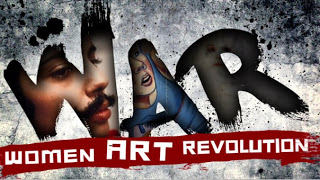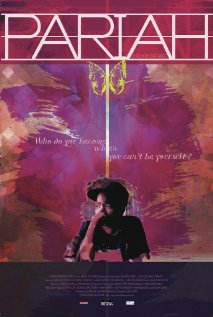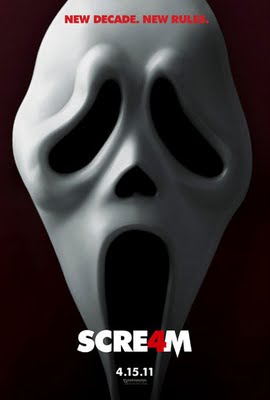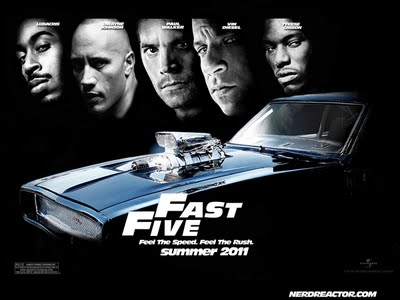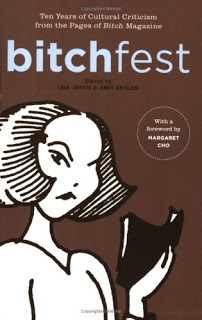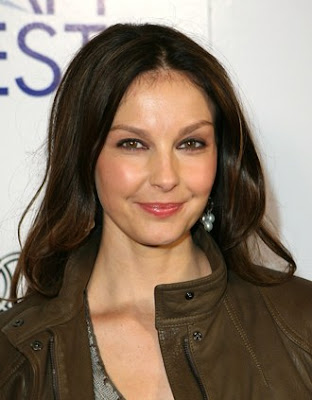I’ve had a difficult time figuring out how to write about this. I understand that people, especially people of color, will rightfully get pissed when they perceive a privileged white woman to have insulted Black culture. And as a privileged white woman, I don’t always feel comfortable engaging in race-related issues like this because, frankly, I’m afraid I’ll either make ignorant assumptions (because of my privilege) or not contextualize my points appropriately (because of my privilege). Ashley Judd has been criticized for doing both those things. In the aftermath, she’s gotten some seriously misogynistic vitriol thrown at her (just spend a few moments on Twitter, if you’re curious) and has even received death threats because of it.
But the truth is, when I first read Judd’s comments, I read them as a factual indictment. Rap and hip hop often contribute to rape culture because all of culture contributes to rape culture because we live in a fucking rape culture. Since that’s the only way I know how to articulate my feelings on this, which is arguably unintelligible and at the very least lacking any kind of analysis of rape culture (I did that
here), I’m rounding up some articles that do a much better job than I can of examining race and gender as intersecting oppressions, and how Judd’s recent remarks fit into that discussion. [Major trigger warnings for discussions of rape, sexual assault, misogyny, and violence against women.]
My people, my people, when will we face the music and save ourselves from ourselves?
Here we go again, yet another well-meaning White person who makes a common sense, very reasonable, factually based statement about something (in this case rap music) that we all know is TRUE and what do we do? We jump all over her and demand that she apologize for “offending us.” Really?
Seriously, what will it take for us to stop the madness? Who among us in his or her right mind can actually defend openly mysoginistic, hateful and demeaning lyrics geared toward Black women and Black culture? I am no C. Delores Tucker, but I find myself asking some hard questions lately relative to where we are as Black people when it comes to how we value our most precious commodity: Black women.
Ashley Judd and Hip-Hop Culture by Kevin Powell, from ThyBlackMan.com:
I am a hip-hop head for life, since my days dancing on streets and at clubs and writing graffiti on walls; to my days as a writer for Vibe magazine and curating the first exhibit on hip-hop history at the Rock and Roll Hall of Fame; to my current task of writing a biography, the next several years, on the life of Tupac Shakur. So I know there is a difference between hip-hop culture, which I represent, and the hip-hop industry, which is what Ashley Judd is referencing in her book.
And we’d be lying to ourselves, hip-hop heads or not, if we actually could say, with straight faces, that hip-hop culture has not been severely undermined, turned inside out, and made into an industry that promotes some of the most horrific images of women and men, that encourages oversexualization and materialism, that pushes anti-intellectualism and a brand of manhood that seems only to exist if one is engaging in the most destructive forms of violence and degrading of one’s self, and of others. That is not hip-hop. That is called a minstrel show, circa the 21st century. And if you really love something the way I love that some thing called hip-hop, then we would be honest about it and not go on ego trips attacking an Ashley Judd for having the courage to say what we should be saying ourselves.
That enough is enough of this madness, that it is no longer acceptable to say our culture is just reflecting what is going on in our communities. Art is not just to reflect what is happening. Art, at its best, is also about dialoguing about and correcting the ugliness in our communities. That will not happen if art is just as ugly as real life, if we are at a point where we cannot tell real life from the staged life.
For sure, Ms. Judd mentions this in her book when she talks about 50 Cent offstage, how professional and polite he was, then the moment he took the stage out came the hyper-masculinity, the bravado, the posturing, the manufactured character. Rather than curse out or disparage Ashley Judd, I think we should instead ask ourselves who we are, truly, in these times, and why so many of us continue to have our identities programmed and directed by record labels and radio and video channels under the illusion of keeping it 100 percent real? Real for whom, and at what cost to our communities?
Back in the 1990s, when I was writing for Vibe, I did an interview with the late C. Delores Tucker, an older Black woman who led a crusade against what she thought were indecent rap lyrics. I was so much younger emotionally and in terms of basic common sense, and did everything I could to make Ms. Tucker look like a buffoon in the printed interview. I really regret that because these women, the real leaders on our planet, are right. Why should it be acceptable to tolerate any culture, be it hip-hop, rock, jazz, reality television, video games, or certain kinds of Hollywood films, that create a space that says it is okay, normal, to denigrate women and girls with words and images?
What we really need to do is examine why rappers are so invested in silencing someone who could have been an advocate for causes and interests of black women. Perhaps the answer lies in what one commenter said on a popular feminist website: “Black male celebrities almost ONLY get pissed about racism in public discourse if it threatens black *masculine* culture and are either totally silent or indifferent about the ways in which black women are effected by racism, sexism in general and sexism from the men within their own racial group. (re: Spike Lee and others who have come out in support of Chris Brown).” She has a point. When was the last time black men, en masse, mobilized because someone offended a black woman? And before you start Googling, let’s stick to this decade, please.
I’m fuming right now because with all of the attacks on Ms. Judd, we, black women, have lost an ally. And it’s not like we have so many to spare. Never mind that Judd has worked tirelessly for the betterment of all women around the world, and she expresses a genuine concern, I guess she’ll learn her lesson next time to dare defend black women, and this incident will teach anyone else who comes along that does not align with The Guardians of All Things Dark & Lovely in the future.
Why, oh why are we so quick to defend the very men who abuse and debase us? Why does Chris Brown have a stable of black women cheerleaders behind him after he pounded Rihanna’s face in? Why did Jay-Z, a drug dealer who shot his own brother at only 12-years-old, make his millions off the backs of black women and become a pinnacle of success? Why do we have spokespeople in the New Black Panthers rallying behind more than a dozen black boys who raped an 11-year-old child and join the pile-on in blaming her?
[in response to Questlove’s assertion via Twitter that “EVERY genre of music has elements of violence.”] I mean yeah it does. But as a hip-hop fan, and as a music fan, it’s really hard for me to believe that all musical forms are equally misogynistic. If we’re being honest, I think it’s worth noting that Kanye West’s “Gold Digger” isn’t just a song, it’s actually is an entry into a rather prolific sub-genre that that spans from “That Girl’s A Slut” to “I Ain’t The One” to the original “Gold-digger” to “Sophisticated Bitch” to “Black Vagina Finda” to “Treat Her Like A Prostitute” to “Davy Crockett” to “The Bitches” to “Dead Wrong” to “Wildflower” to “Hoe Happy Jackie” to “Truly Yours” to “Beautiful Skin” to “The Nappy Dugout” to “I’m Only Out For One Thing,” to “Let A Ho Be A Ho” to “Bitches Ain’t Shit” and so on…
Let’s get some things out of the way early. We know that this statement doesn’t apply to all hip hop. There are thoughtful, creative artists whose music is not based on denigrating women. Mos Def, Talib Kweli, J-Live, The Roots, Toki Wright, Shad, Pigeon John, P.O.S., and Blitz The Ambassador, are some that come immediately to mind. And there are plenty of women who represent hip hop, as both MCs and spoken word artists. Think Invincible, Jean Grae, Jessica Care Moore, Toni Blackman, Bless Roxwell, to name a few here.
So, what I think Ashley is guilty of is over-generalization. But the fact is that too much of hip hop does, in fact, denigrate women, be it through lyrics or videos. Recent examples such as Kanye’s Monster video or most of the work of recently celebrated teenagers Odd Future fall in this bucket. And Girl Talk samples what I think are some of the most vile examples of hip hop for his mashup albums.
What you end up with is work that creates an environment that devalues women. And it’s true: Rappers talk about women in the third person, as sexual objects or body parts, or women are seen gyrating half-naked in videos as a symbol of some dude’s material success. Call women bitches and hoes enough times over dope enough beats and an attitude gets normalized.
Hip hop is a global pop cultural phenomenon. It not only defines how a generation sees itself, but it also has become the shorthand for what’s cool around the world.
When Jay-Z signed Jay Electronica to Roc Nation label, it seemed like a triumph of underground hip-hop culture — the talented Jay Electronica, along with Jay-Z’s formidable business and promotional acumen, could change the game for the better. Instead, the rapper has elected to use some troubling language in his live performances, polling his audiences to inquire if women “like being choked during sexual intercourse.” Many feminist bloggers and activists challenged Jay Electronica directly.
For the survivors of violent sexual assault and for those of us who understand that sexual assault against women is a critical problem for all of us, this sort of thing is simply unacceptable. Maybe I am sensitized to this because my daughter just turned 10. But I’m also aware that even though individuals must be responsible for their own acts, too many are susceptible to subtle (and unsubtle) cues — from pop culture and the public sphere — that subject women to male dominance, and reaffirm the sexism and misogyny that lead to sexual violence against women.
That we, myself included, are always ready to defend hip-hop is a good thing — I think. Hip-hop cannot be the scapegoat for every talking head who is looking for an easy way to dismiss and degrade youth culture or black music. But rap and the industry that has developed through its popularity must be held accountable for its contributions to the world — and that includes any role that the industry might play in the construction and cultivation of rape culture in society. If you don’t want to hear it from Ashley Judd, then maybe you can hear it from me.
From Liquor&Spice:
Can I, a Black woman, talk about rape culture from my point of view, please? YES there’s a shit ton of rap and hip hop and r&b that is violent and degrading to me. It’s usually the shit that WHITE PEOPLE BUY THE MOST AND PUT ON THE RADIO AND SING ALONG TO IN THE CLUB! You know how many white girls yell at the top of their lungs to, “and when he get on, he leave your ass for a white girl!” It usually occurs after they violate my space and my body telling me to “shake that ass” and petting my hair like I’m a goddam dog. Can I talk about THAT part of rape culture please?!?!? The rape culture fueled by white chicks thinking they can take my identity to fuel their jungle bunny fantasies? Who think it’s awesome to smack my ass or comment on my body out loud to their friends?
And those songs suck! It sucks that they’re popular! It sucks that it validates how white people WERE ALREADY TREATING ME LIKE PROPERTY. LIKE THEY BEEN DOING FOR CENTURIES BEFORE RAP WAS INVENTED.
And it’s SO AWESOME how nice, white ladies find the time to tell me most of rap and hip hop are violent and rapey while not giving a fuck when I tell them SO ARE YOU! So are your white people books and movies and news and college curriculums and professors MEN AND WOMEN. All of them degrade my Black womanhood EVERY GODDAM DAY!
Black women have been talking about (and back to) misogyny in hip-hop since it’s inception. Y’all remember Roxanne Shanté right?
It’s frustrating when all the work that black women have done to speak back to music that has particular, real world consequences in our lives is ommitted and unacknowledged. We’ve also done this talking back with an analysis of the systemic forces that make black men/rap music the scape goats for societal oppression of women. I know it’s a personal narrative, but can some hip-hop feminist foremothers get a shout out?
If we can all turn to the Ten Crunk Commandments for Re-Invigorating Hip Hop Feminist Studies, we’ll see that the first commandment reminds us to “know and cite” authors who have shaped the field of hip-hop feminism. This commandment doesn’t just apply to Judd but also to some of her defenders. If you are going to defend her position, can you cite the black women who have actually done work on the issue in scholarship, film, and action? The “she has a point” camp feels dismissive of decades of resistance and carefully crafted projects by hip-hop feminists and activists.
Leave your links!


